
The scorching summer sun, coupled with high temperatures, can easily damage your skin more than ever.
Not all creams are suitable for year-round use, and sometimes, what you think is “doubling the love” for your skin can actually be the reason for its damage. Let’s identify the ingredients that should be temporarily avoided during the day to protect your skin from the sun’s heat.
Retinol and Tretinoin – Beautiful but Demanding
Retinoids and their derivatives such as retinol and tretinoin are the “stars” of anti-aging, acne, and scar treatments, helping to stimulate the production of new cells and reduce wrinkles. However, their mechanism of thinning the stratum corneum and enhancing regeneration makes the skin more sensitive to sunlight. When exposed to UV rays, the skin that has not had time to recover can easily sunburn, peel, and turn red, especially for those with thin or sensitive skin.
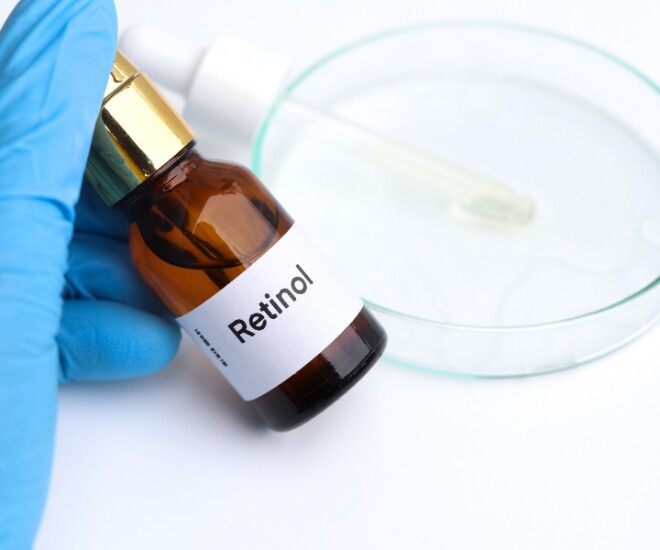
Famous acne-fighting ingredients like retinol and tretinoin work fast, but they also make the skin thinner and more sensitive to the sun’s damage.
In 2021, singer Toc Tien shared photos of her skin peeling and turning red after a beach vacation, despite her consistent use of sunscreen. She shared that her skin was not usually sensitive to retinol, but after the beach trip, her face suffered from an allergic reaction, with peeling and redness on both cheeks.
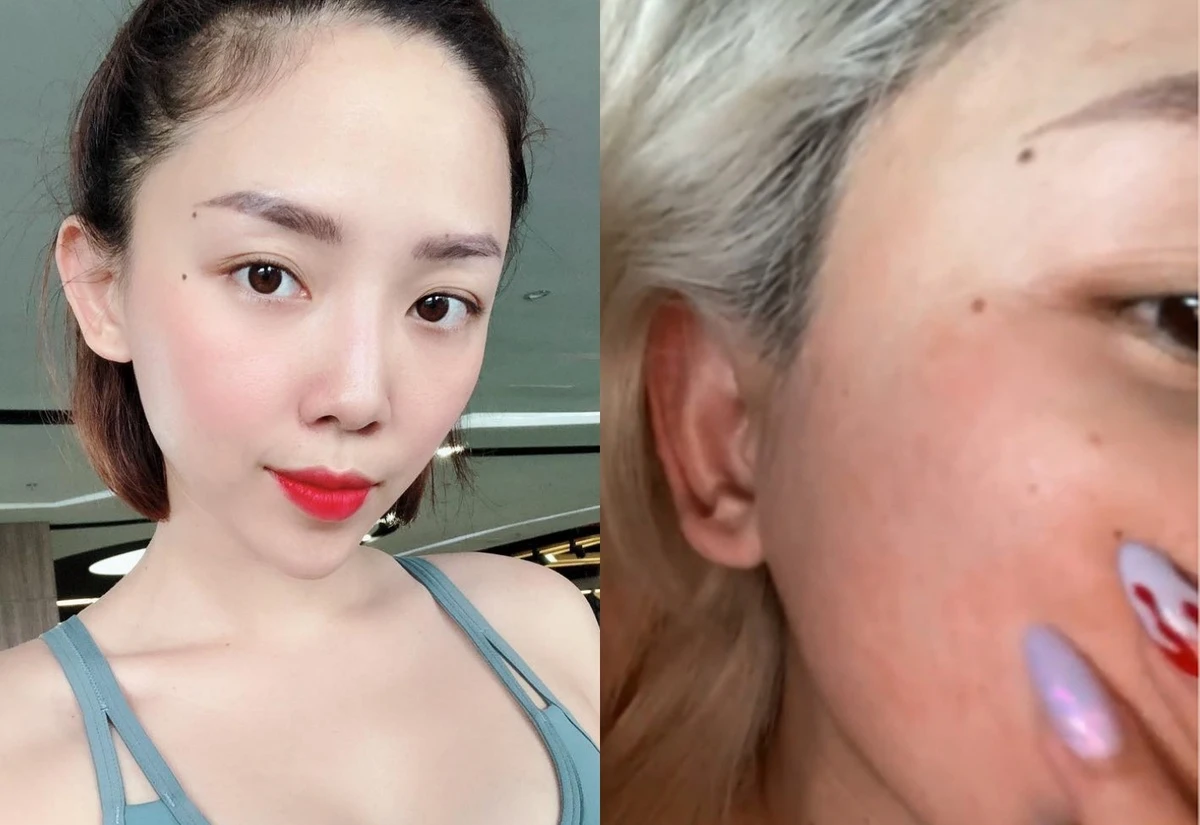
Toc Tien, a singer known for her healthy skin, also “cried” due to using retinol before going to the beach.
From her experience, she advises discontinuing the use of retinol at least a week before going to the beach. This warning further emphasizes that retinol should be a “nighttime companion” – avoiding daytime sun exposure at all costs.
Exfoliating Acids: Salicylic, Glycolic, Lactic, and Mandelic
Exfoliating acids are often praised as the “heroes” of bright, acne-free, and even-toned skin. However, acids such as Salicylic Acid (BHA), Glycolic, Lactic, Mandelic, and Tartaric (AHA), as well as Polyhydroxy Acids (PHA), share a common feature: they thin the skin and make it more susceptible to sun damage.
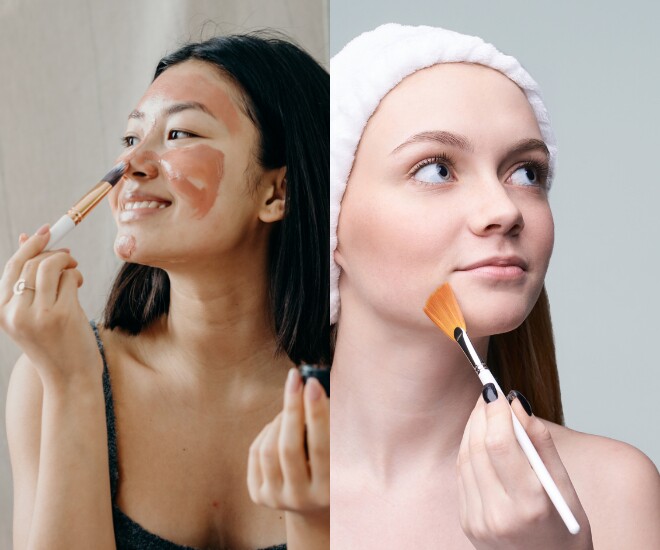
Exfoliating acids should not be included in your skincare routine before sun exposure, as they will thin the skin, remove its protective layer, and make it more vulnerable to damage.
Actress Nguyen Hoang Ngoc Huyen, known for her role in “Cha toi, nguoi o lai,” also experienced discomfort due to using BHA, but eventually, her skin improved beautifully.

Nguyen Hoang Ngoc Huyen reminds her audience that when using BHA, one should apply sunscreen diligently to avoid skin damage.
If you must use these acids, it is recommended to do so in the evening, ensuring adequate moisture and protection the next morning. During the intense summer heat, it is best to set aside these acids to give your skin a chance to “rest.”
3. Benzoyl Peroxide – Effective Acne Treatment but Causes Skin Discomfort in the Sun
Benzoyl Peroxide is a popular acne-fighting ingredient that works by killing acne-causing bacteria and reducing inflammation. However, it can also dry and peel the skin, weakening the skin’s natural protective barrier, making it more susceptible to UV rays during the day.
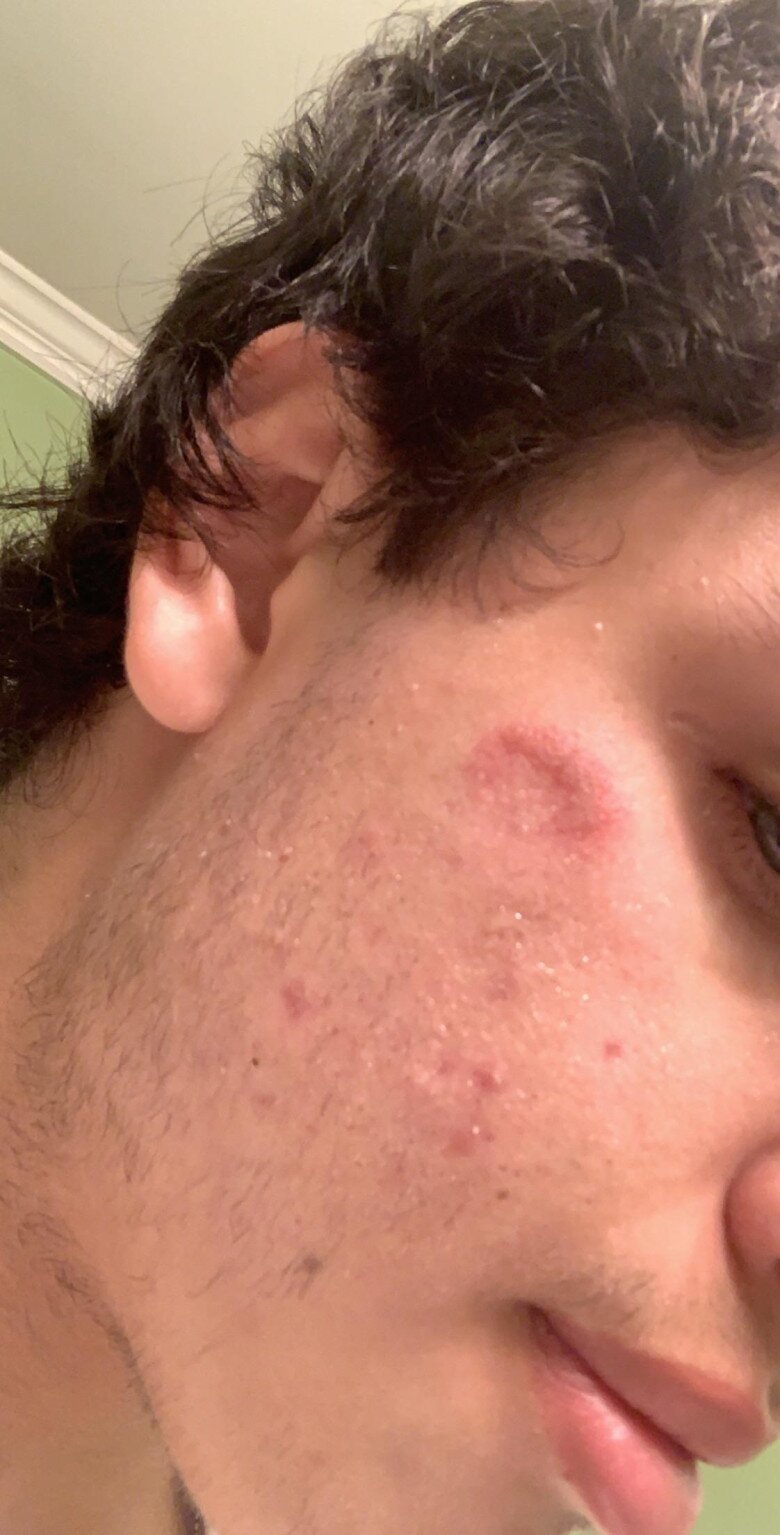
Benzoyl Peroxide is a well-known acne-fighting ingredient, but sensitive skin may not “appreciate” it when exposed to the intense summer sun.
For those with sensitive skin or experiencing inflammation, using Benzoyl Peroxide in the morning can cause severe skin damage in the summer heat. If you can’t give up this ingredient, try using it at night and never forget to apply sunscreen every morning.
4. Citrus Oils – Fragrant but Potent Photosensitizers
Natural essential oils are beloved for their subtle fragrances and relaxing effects, with the citrus family, including bergamot, lemon, and orange, frequently appearing in cleansers, serums, and moisturizers. However, these citrus oils contain furocoumarins, compounds that increase the skin’s sensitivity to light.
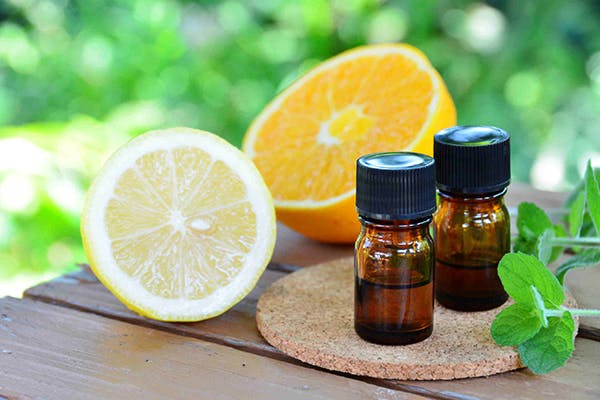
Citrus oils in skincare products can make the skin more sensitive to UV rays, so they are not ideal in your pre-sun exposure skincare routine.
Direct exposure to UV rays after using citrus oils can lead to photochemical reactions, resulting in sunburn, dark spots, or even burns. If you notice a serum with a “refreshing scent of citrus,” carefully check the ingredients before applying it in the morning. It’s best to reserve products containing citrus oils for relaxing evening routines and avoid using them before sun exposure.
5. Hydroquinone – Skin Lightener but UV Inviter
Hydroquinone is a powerful skin-lightening agent commonly used to treat pigmentation issues such as age spots, freckles, and acne scars. Its mechanism involves inhibiting the enzyme tyrosinase, which produces melanin. As a result, dark areas of the skin gradually lighten. However, as natural melanin production is suppressed, the skin also loses part of its “protective barrier” against sunlight.
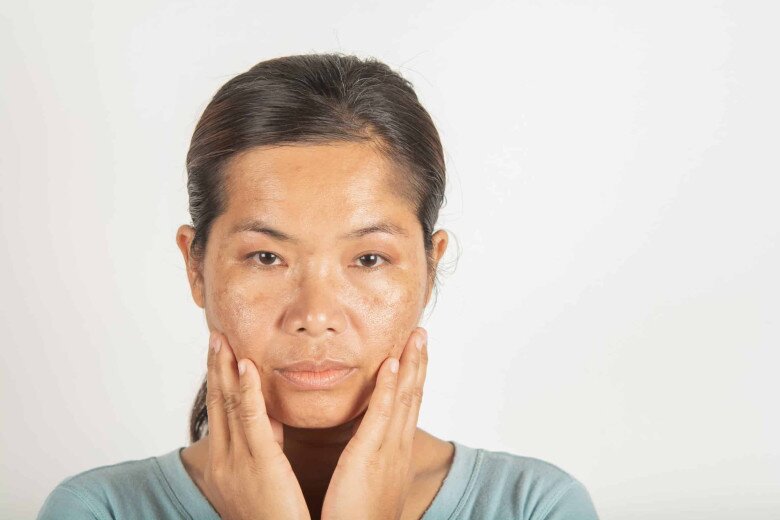
Hydroquinone can be a “best friend” to those struggling with pigmentation issues, but it will worsen the situation if exposed directly to the sun.
This makes the skin more susceptible to sun damage, dark spots, and further complications if not adequately protected. Some people may even experience adverse reactions such as contact dermatitis or reverse hyperpigmentation if used incorrectly. Therefore, hydroquinone should be used under medical supervision and must not be used during the day without strict protective measures.
































